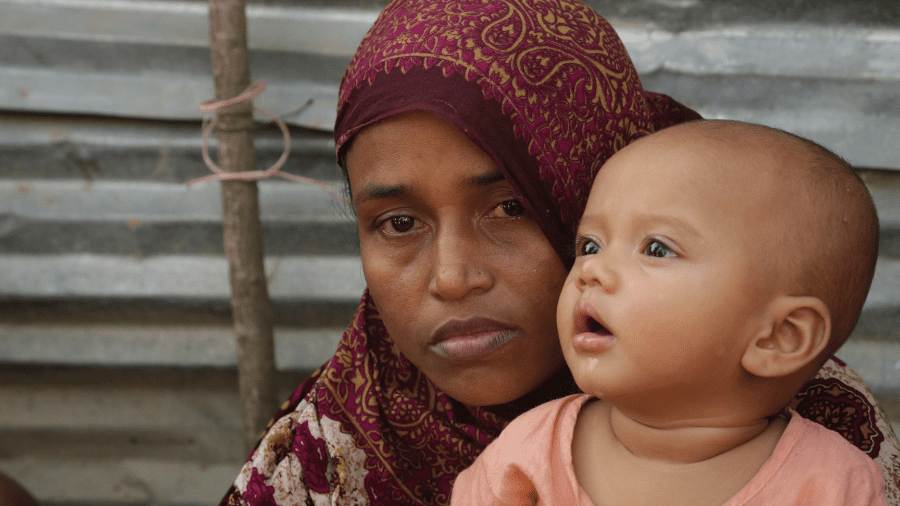This article originally appeared in the Ottawa Citizen.
By Ken Coates, January 23, 2023
DHAKA, Bangladesh — Five years ago, the Myanmar dictatorship’s murderous attacks on ethnic Rohingyans sent hundreds of thousands of people fleeing in terror, most pouring over the border into neighbouring Bangladesh.
Today, as the weight of the Rohingyan massacre continues to grow, the world’s attention has drifted to the exodus of refugees escaping Vladimir Putin’s invasion of Ukraine, and streams of Russians abandoning their own country.
But in 2017, Bangladesh — an impoverished nation with 170 million people — responded to the humanitarian crisis and accepted the Rohingyan refugees, while appealing to the global community for financial and logistical support to cope with the burden.
There are now more than 1.2 million Rohingyans in Bangladesh, most living in sprawling compounds such as Kutupalong, which, at 800,000 occupants, is the world’s largest refugee camp. The Bangladeshi government, worried about 600,000 Rohingyans still in Myanmar who might yet flee, says it cannot accept more refugees, and has a controversial plan to relocate thousands to a low-lying island that floods during monsoon season.
Over decades, forced human migrations — caused by political strife or desertification or climate change — have begotten massive camps across sub-Saharan Africa, the Middle East, and neighbouring states. Since 1950, the United Nations High Commissioner for Refugees (UNHCR) has overseen the world’s most significant refugee sanctuary program, buttressed by billions of dollars in international aid.
Countries such as Canada try to help; UN Special Envoy Bob Rae (now Canadian ambassador to the UN) has worked hard to keep the Rohingya crisis in the federal government’s line of sight. But global help in paying for camps does not address the actual problem.
Clearly, struggling states should not be left to house the world’s refugees. Bangladesh already has crippling internal problems: lack of infrastructure, vast poverty, rampant inflation, even seeing its land mass disappear as global warming raises sea levels.
Accommodating Rohingyan refugees only aggravates domestic misery. Predictably, historic tensions between these south Asia peoples become further inflamed as destitute Bangladeshis see millions of dollars’ worth of food, medicine and shelter arriving for people in the camps.
Bangladesh shouldered a major burden on behalf of the global community. But, here and elsewhere, the broader global community’s refugee relief initiative is by necessity a perpetual work in progress, and continues to strive for an end-game strategy.
The world’s refugee population is growing relentlessly. The UN estimates the world currently has 27 million refugees and another 53 million internally displaced people. Conflicts in Iran, Syria, Ethiopia, Eritrea and Afghanistan have sent hundreds of thousands of evacuees fleeing to camps across the Middle East and Africa. From those compounds, a relative handful — probably in the hundreds — will be accepted into the security and opportunity of developed nations such as Canada, Australia, Germany and others.
In camps around the world, UNHCR grapples with the complex task of coordinating humanitarian support on a massive scale. Its priorities begin with protecting people from imminent death and extreme hardship, and most emergency situations eventually evolve from crisis relief to long-term stability — but not always. While some refugee camps, such as those formerly housing Vietnamese “boat people,” can be terminated because their crisis has abated, others have become near-permanent communities. In Jordan, the Ein el-Sultan camp for Palestinian refugees has existed in various sizes for more than 70 years.
When the need is dire, hopefully most nations would, like Bangladesh, react honourably to a moral imperative. Imagine the consternation if the Rohingya migrants had headed to Canada. There would be formidable challenges accommodating 1.2 million refugees — equal to the population of Saskatchewan — but surely we would muster the money, space, and public commitment to do our part.
Even in the present circumstances, there are ways Canada could be part of a solution.
It could help pay the cost of operating the Bangladeshi camps; or position its excellent post-secondary institutions to provide onsite education and training that transitions refugees into better life paths; or — continuing one of this country’s finest traditions — help launch an international movement by agreeing to resettle many Rohingyan immigrants.
Bangladesh deserves the world’s thanks, but it is becoming ever more clear that we cannot keep kicking a can down the road by using refugee camps to temporarily obscure the social, religious, and regional problems that the world really needs to resolve.
Ken Coates is Distinguished Fellow at the Macdonald-Laurier Institute, and a Canada Research Chair at the University of Saskatchewan.






